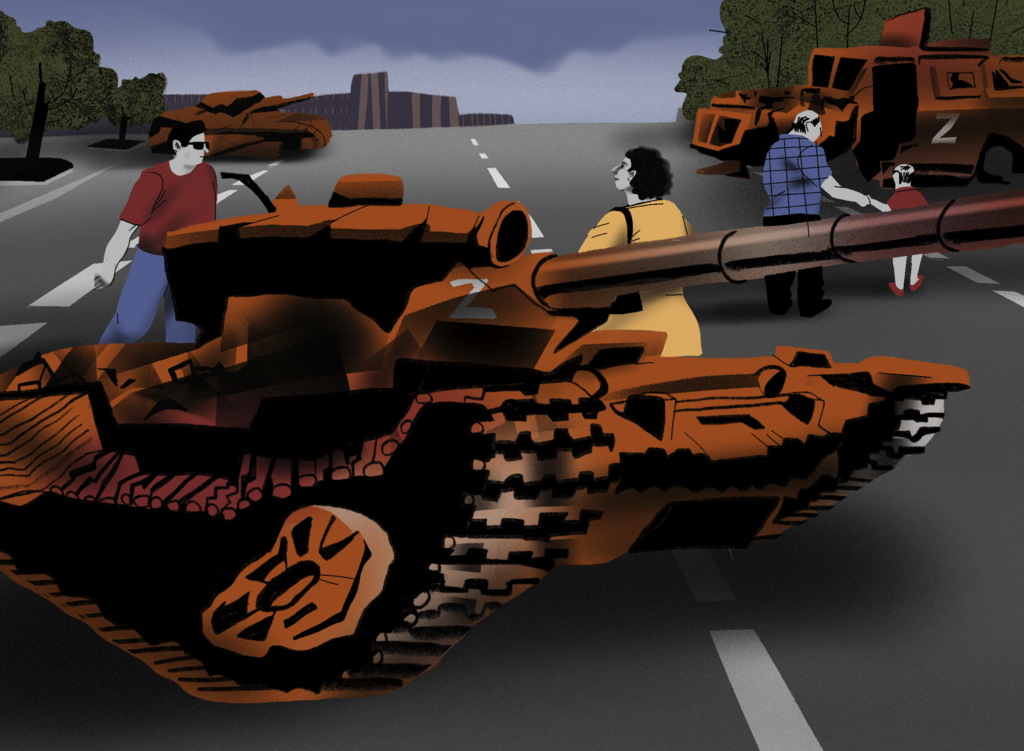
Eternal memory to everyone killed by Russia in its war against Ukraine.
Our work in 2022 was possible thanks to the defenders of Ukraine who are sacrificing their strength, comfort, health, time, and even lives for all of us to have freedom and our lives. Thank you!
The Russian war changed both Ukrainian society and our work. The scale of social challenges increased, so the search for the best ways to meet those challenges has become even more important.
During the first weeks of Russia’s full-scale invasion of Ukraine, the majority of the Cedos team who had worked from Kyiv until then were forced to leave the city. People started to come back already in April, after the Kyiv Region was liberated. Despite this, we worked remotely the whole year, and some of the team continued to stay abroad. Just like everyone in Ukraine, we did our work in 2022 alongside volunteer activities, the difficulties of displacement, the dangers of air raid warnings, limitations due to blackouts, concerns about our family and loved ones in battle zones, and strong emotions due to tragic news and uncertain future.
As an organization, on the first days after February 24 we focused on mutual aid and informational work, but already from March 1 we returned to our research and analytical work. Our priorities were: 1) research of life during the war and the war’s impact on Ukrainian society, 2) analysis to search for ways to overcome the negative consequences of the war, 3) spreading information about Ukraine abroad, discussing the paths of recovery and exchanging experiences of research and analysis in wartime.
A few key numbers. In 2022, Cedos worked on 15 projects. The project teams involved 14 people. Throughout the year, we published 7 research reports, 17 analytical briefs, 6 articles, 14 columns, and 16 podcast episodes. We organized 22 events in total (2 offline and 20 online). Our Facebook, Instagram and Twitter pages, Telegram channels and mailing lists have over 28,000 subscribers in total. In 2022, the outreach of our social media publications and mailing lists was over 1.1 million people. We were mentioned in the traditional media—including television, radio, podcasts and online publications—over 300 times. We are grateful to our donors and partners for their trust, and to everyone who donates to our work, to our friends, colleagues, respondents, readers, listeners, participants of our events, and everyone who has been with us!

Mission
We believe that every person is entitled to a dignified standard of living. So the purpose of Cedos is to look for systemic causes of social problems and options for their solution.
Our approach is research-based. We study social processes and public policies, spread critical knowledge, promote progressive change, teach and strengthen the community of supporters of this change. We believe that this is a way to affect the discourse and discussion in society, as well as decision making. It changes public policies and improves people’s lives in the real world.
The key subjects which Cedos works on today are education, migration, urban transformations, housing, employment, social security. In addition, our field of interest also includes the topics of democracy, employment, security, climate change, and culture.
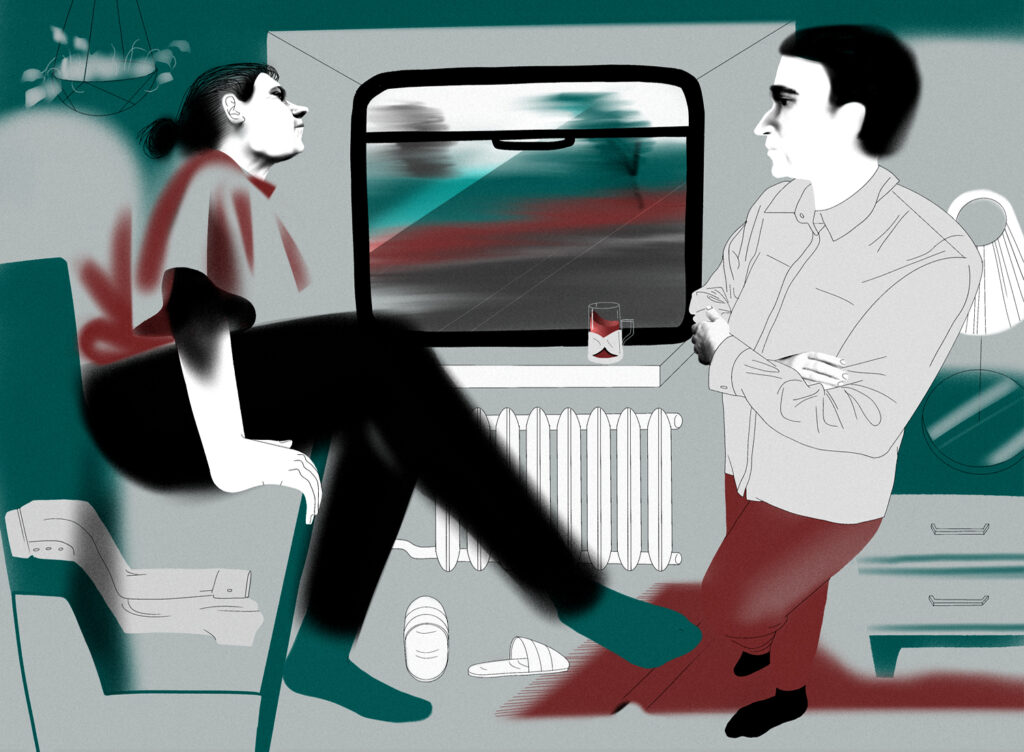
Research and analytics
Research and analytics is the are the foundation of Cedos’s work. We completed several projects right before Russia’s full-scale invasion of Ukraine.
Continuing our previous work on analyzing the impact of the COVID-19 pandemic on Ukrainian society, we prepared our last brief on the subject, dedicated to the pandemic’s impact on employment in the field of social protection. The working conditions in the field were not decent even before the pandemic, and the quarantine conditions only deepened the existing problems. We described and analyzed the key challenges in this field in order to start looking for solutions to meet these challenges based on this analysis.
Cedos experts were commissioned by our partners to conduct another round of research on the interactions between the climate civil movement and government agencies during the previous year. Its findings help civil coalitions, donors and government bodies to assess the effectiveness of their work and improve their planning of further collaboration and support.
In response to the Kyiv City Council’s decision to start working on defining the powers of district councils in order to resume their work in the city, we analyzed the international experience of the functioning of bodies similar to district councils in big European cities.
We also published a brief prepared earlier as a part of our internship programme, dedicated to the analysis of Vienna’s experience of the functioning of municipal housing and its comparison to the housing policy in Ukraine.
Our first response to the full-scale Russian invasion of Ukraine was our work on studying the experiences of living through the war in Ukrainian society, which we began already during the first week after February 24. Throughout the year, we conducted four waves of the study: in early March, in May, August and November. The purpose of this work was to collect data directly while the events unfold in order to capture, describe and generalize the experiences of war as a basis for further research and planning of transformative change.
After the beginning of the full-scale war, we also began working to analyze its impact on the spheres of housing, education and social protection, as well as on forced migration. We published two reviews of housing issues (for the first and second-third months after the invasion), one review of social protection, one review of education, and two reviews of forced migration (for the first and second-third months). In addition, separate briefs concerned the education of Ukrainian refugees abroad, the return of IDPs and refugees, and education in the occupied areas.
In response to the unprecedented housing crisis caused by the war, as well as to the lack of mechanisms to respond to it within the existing housing policy, we prepared the document 37 theses about the current state, challenges and principles of new housing policy in Ukraine. It offers a vision of the future housing policy centered around people, their needs and opportunities.
We were commissioned by the Spatial Development Agency of the Vinnytsia City Council to conduct a study of the housing needs and housing conditions in Vinnytsia. The findings will allow the local government to assess the changes caused by the war and to make a plan for responding to the existing challenges caused both by the large-scale internal displacement and by the systemic shortcomings of the housing policy in Ukraine.
Cedos conducted an analysis of the system of social, temporary and crisis housing in Ukraine. As a part of this study, which began back in 2021, we described the state of affairs before the full-scale invasion as well as the weaknesses and strengths of non-profit public housing in Ukraine. The housing crisis caused by the war made its development urgently necessary. Thus, the analysis we conducted will serve as the basis for designing a new policy for the development of social and non-profit housing in Ukraine.
In many cities, the beginning of the full-scale war caused the arrival of large numbers of internally displaced people who had an urgent need for housing; this need was met, among other ways, through the private rental market. The rapid increase in the demand caused a price hike, which made the discussion of the problems of the private rental housing sector in Ukraine very relevant. Cedos prepared the legal guidelines How to Rent Housing. Despite the widespread misconception, the rental market is not entirely unregulated. The law defines a number of rules which it should follow, but awareness of these rules and the culture of compliance with them are limited. To encourage changes in this situation, we prepared the guidelines with advice and recommendations for both tenants and landlords.
At our partners’ request, Cedos also composed a Ukrainian-English vocabulary of the key terms in the fields of housing and housing policy.
In autumn 2022, we conducted a representative nationwide survey and used its findings to publish a report on the population’s attitudes to government socioeconomic support programs and the need for them. One of the consequences of the full-scale war is both the increased need for aid and the government’s limited capacity to fully meet the need. Each of the possible solutions in this situation may leave part of the population dissatisfied, so studying the public opinion about various options for compromise is important for the planning of public policies.
In spring-summer, the Ukrainian government and invited experts worked on the draft plan of recovery from the consequences of the war, intended to be implemented over 10 years. 23 documents on various spheres of life were prepared. Cedos made a review of the draft recovery plans for secondary and higher education, housing, and the return of forcibly displaced people. For the purpose of developing the public discussion on the key principles of recovery, we analyzed the advantages, disadvantages, opportunities, and risks of these documents.
One of the most painful consequences of the war for education were education losses, the gaps in the knowledge and skills of students due to their limited access to education. Ever since the quarantine introduced in response to the COVID-19 pandemic, the Ministry of Education has not been paying sufficient attention to measuring and compensating for education losses. As the impact of the full-scale war has only deepened the negative effects of the pandemic, the problem has become even more relevant. To draw attention to it and offer potential solutions, we prepared an overview of approaches to measuring and compensating for education losses.
One of the effects of the war has been growing unemployment. Job loss and job search have become a problem for many people in Ukraine. The hostilities caused changes in the economy and the country in general, and as a result the issue of unemployment will remain on the agenda for a while. In search of ways to respond to this issue, Cedos prepared an analysis of the approaches and experience of European countries in terms of stimulating employment, particularly in times of war and postwar periods.
Throughout the year, Cedos also analyzed and commented on topical events, including the introduction of surveys in the government app Diya, the discussion of the new version of the bill on complex reconstruction of obsolete housing blocks, the attitudes towards refugees in Ukraine, the problems of the private rental housing sector after the beginning of the full-scale invasion, the introduction of the National Multi-Subject Test instead of the External Independent Evaluation, suggestions for social policies in the Ukraine Recovery Plan draft, the situation of refugees in the contemporary world, the adoption of the municipal Housing Provision Program in Kyiv, the choice of the format of education (online or offline) in Ukrainian schools, the need to take into account solidarity in social policies in the context of recovery in Ukraine.
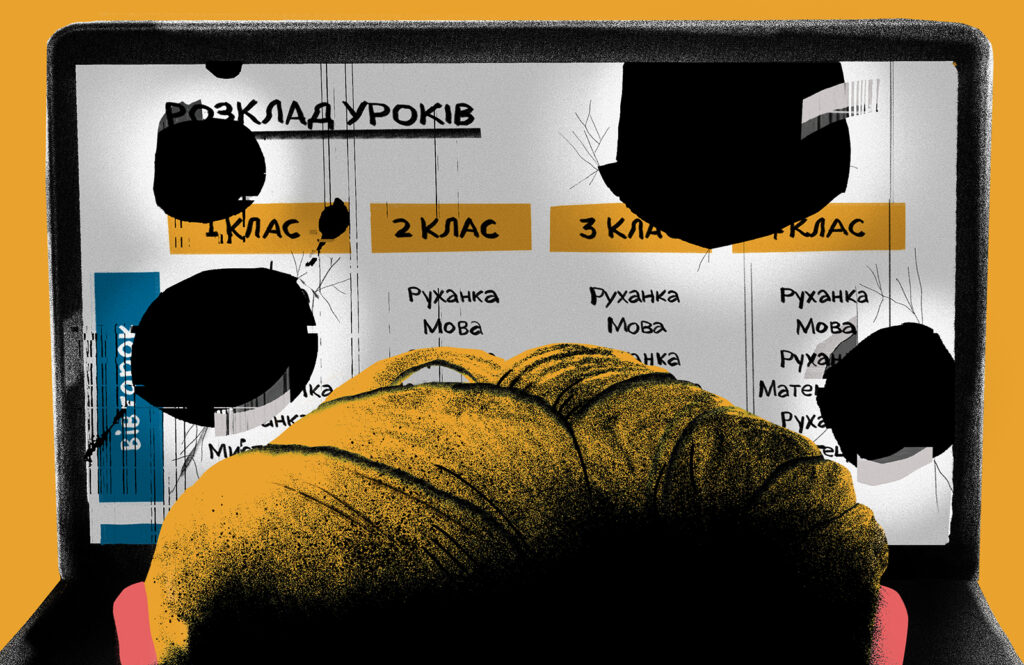
Community of change
Alongside research and analysis, Cedos’s mission is also to spread knowledge, make the socio-political discussion richer, and empower social movements, the government, the media, and expert circles.
We do not just publish research and analytical briefs, we also send them to the responsible government bodies, organize public presentations and discussions, share them on various social media, and publish brief conclusions in traditional media.
In January 2022, Cedos launched its first crowdfunding campaign aimed at raising the funds to create legal guidelines on rental housing. Unfortunately, the full-scale war prevented us from implementing our initial plan, but thanks to the funds raised before February 24, we were able to prepare and publish the guidelines, albeit in a limited format. We are grateful to all the donors whose participation made it possible!
The full-scale war has limited the possibility of organizing public events in the usual format. In search of the most convenient format in view of the new challenges, we conducted most public events in 2022 in the form of online livestreams on the Cedos Facebook page; the recordings were also published on the organization’s YouTube channel, and some of the conversations were also published as episodes of our Think Tank podcast. In addition to presentations of studies and our developments, we held discussions about the return of Ukrainian refugees and internally displaced people, the impact of the war on education in Ukraine and other European countries, the influence of the war on secondary and higher education in Ukraine, the experience of war-related housing provision in Ukraine and Georgia, the principles for rebuilding housing and updating the housing policy in Ukraine, crisis housing in Ukraine, the influence of education on human capital in the conditions of war.
For the purpose of searching for responses to the housing crisis caused by the war, there is a need to discuss various options and experiences of housing policy. As a part of theRe.Housing for Ukraine initiative, we have launched an analytics and discussion platform which has hosted lectures on the mechanisms of funding and investment for affordable and inclusive housing, housing in the US, alternative models of rental housing cooperatives.
The opportunities and limitations of social research during the war have become a methodological and ethical challenge both for us and for the entire community of social researchers in Ukraine. For the purpose of exchanging experiences and approaches to our work, we organized four seminars within the Cedos School: one offline meeting in Lviv and three online seminars dedicated to research of the war’s impact on society, advocacy and criticism, and the evaluation of needs in the conditions of war.
The Ukrainian Urban Forum, which used to be an annual event, did not happen in 2022 due to the war. In January-February, we started preparing for the first offline forum since the beginning of the pandemic, which was to be held in Drohobych, but we had to cancel these plans. The war also affected the development of other platforms for dialog, experience exchange and the spread of knowledge in the field of urban transformations. For instance, the online magazine of the Ukrainian Urban Platform,Mistosite, only published 4 articles and 1 book excerpt during 2022. Despite this, the website’s annual audience reached over 50,000 users. The membership of the Urbanism UA Facebook group, created and moderated by Cedos, has grown to more than 3,700 participants.
In May-June, Cedos joined the Housing Policy subgroup of the Construction, Urban Development, Modernization of Ukrainian Cities and Regions working group of the National Council for Ukraine’s Recovery from the Consequences of the War. This was the body that worked to prepare the Ukraine Recovery Plan presented by the Prime Minister at the Recovery Conference in Lugano.
In November, the Kyiv City Council adopted the Concept for the Integrated Development of the Podil District until 2030. This document was developed back in 2018–2019 by a multidisciplinary team which included Cedos experts Mariia Hryshchenko, Daryna Pyrohova, Ivan Verbytskyi, Mariia Kudelia, Iryna Kohut. In particular, they were responsible for preparing the sections on Education and Social Development, participated in the development of the housing policy concept (particularly with regard to social housing) as well as the general principles of the document, and were involved in facilitating public discussions.
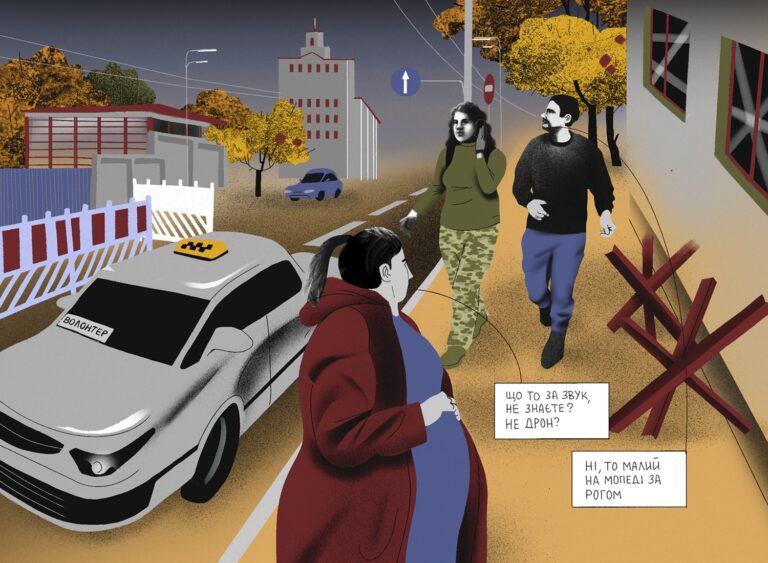
Acknowledgements
In 2022, the Cedos team included: Anastasiia Bobrova, Andrii Кlymchuk, Alyona Vyshnytska, Elena Syrbu, Iryna Bezvershenko, Ivan Verbytskyi, Kateryna Babych, Liliana Filipchuk, Mariia Kudelia, Natalia Lomonosova, Tetiana Zheriobkina, Valeriia Lazarenko, Vita Shnaider, Yelyzaveta Khassai, Yuliia Kabanets, Yulia Nazarenko.
Our partners, donors and clients in 2022:
- Affordable Housing Institute;
- Black Sea Trust for Regional Cooperation and the European Union;
- Deutsche Gesellschaft für Internationale Zusammenarbeit: Integrated Urban Development in Ukraine II project;
- Educational Ombudsman of Ukraine;
- Heinrich Böll Stiftung, Kyiv Office;
- Info Sapiens;
- International Renaissance Foundation: the Think Tank Development Initiative with financial support from the Embassy of Sweden in Ukraine;
- ISAR Ednannia, the EU Project for Civil Society Development in Ukraine with support from the European Union;
- Khmarochos;
- Prague Civil Society Center;
- Pro.Svit Center for Innovative Education;
- SavED Charitable Foundation;
- Spatial Development Agency of the Vinnytsia City Council;
- Ukrainian Center for Law and Crime Research;
- Ukrainian Women’s Fund;
- Ukrainian Women Lawyers Association “JurFem”;
- “U-LEAD with Europe” program with the support of the European Union and its member states Germany, Sweden, Poland, Denmark, Estonia and Slovenia;
- ZMIN Foundation.
Thank you for your cooperation and support!
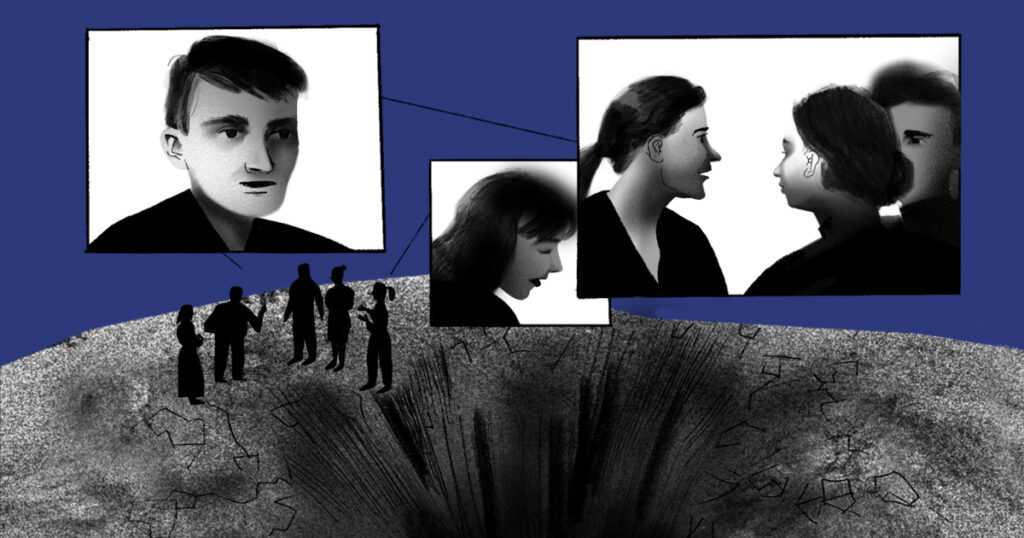
Finances
Cedos funding sources in 2022:
| Donor or purchaser | USD |
| International Renaissance Foundation | 96 831 |
| Prague Civil Society Center | 22 677 |
| Ukrainian Women’s Fund | 22 281 |
| Heinrich Böll Stiftung | 10 061 |
| Black Sea Trust for Regional Cooperation | 8 733 |
| Deutsche Gesellschaft für Internationale Zusammenarbeit | 7 971 |
| ZMIN Foundation | 7 219 |
| Pro.Svit Center for Innovative Education | 5 558 |
| Affordable Housing Institute | 1 750 |
| Charitable contributions of individuals | 979 |
| Total | 184 060 |




